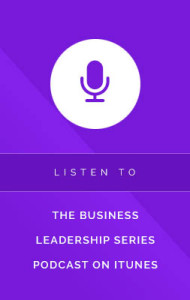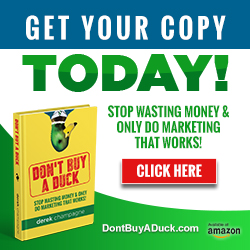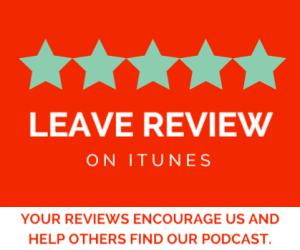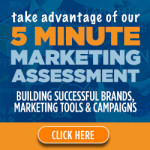BLS Interview with Henry Ho, Co-founder and Partner at Field Agent, Part 2
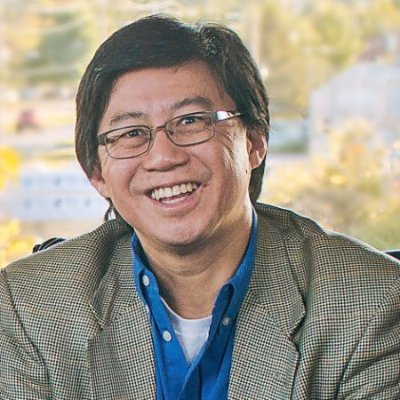
Derek Champagne (CEO of The Artist Evolution) and Jay MaGee (Brand Outreach Coordinator at The Artist Evolution) interview Henry Ho, Co-founder and Partner at Field Agent. Henry discusses the process of starting his revolutionary app, staying ahead of competition, and how to effectively lead a team.
Read part 1 in which Henry discusses starting Field Agent.
Jay: How would you define a servant leader?
Henry: I would define a servant leader as someone who thinks about developing their people, ahead of getting and achieving goals for him or herself. So it’s about investment in people and achieving results and business goals through an organization, which is really through people. A servant leader equips, enables and helps people in his organization first. If you’re a team leader, you develop your team, if you’re a company leader, you develop the people in your company and then as you go beyond that, you serve your community and then you serve your industry. So as leaders, as we develop these capabilities and understanding of what’s going on, we want to take our learnings and share that back with the business community, something like what we’re doing now.
Derek: So how do you build a team?
Henry: You know, there’s different ways. Sometimes you inherit a team and you’re put in charge of a team that’s already existing and sometimes you get to hand pick your team. I’ve had experiences with both, but the principles are the same. You get to know the people that you work with, you understand their strengths, you focus on building on those. And then in the opportunity that you have to build a team, then you’re now very selectively picking skill sets and strengths so they become complementary. Those are rare and in business, you don’t often get the chance to start with a brand new slate and team members but I’ve had that opportunity in building new companies. We try to balance the strengths and the skill sets that you want to have. I’m a big believer, I don’t think we have time but I’m a big believer in a concept called ‘Brain Styles’.
I worked with an author back in the early ’90s, her name was Marlene Miller. She wrote a series of books on brain styles, so I think your audience will probably benefit from that. In fact, I went to a start-up discussion yesterday at the Historic Junkie in Fayetteville. The woman who gave the talk, she was a start-up CEO and she talked about the different ways that people come at problems. And brain styles basically value the way you think through problems. So whether you’re left brain, right brain and the speed in which information is processed. My premise is, our greatest diversity is our brain styles and I would love to talk about that some other time but that is a great way of understanding who your team members are. And then fully leveraging their brain styles to help you get the information, process information. At the end of the day, business plans, strategies and execution is a series of business information, processed and executed.
Derek: Wow, okay. So tell me about having a balance in life. You’re a busy guy, you’re a family guy too. How do you find that balance?
Henry: My balance comes from just loving what I do and creating flexibility in my life. I’m involved in a lot but the great thing about being an entrepreneur and kind of creating your own business is you create flexibility. And if you create flexibility you can get a lot of things done, you’re not boxed in. That’s the thing that I’ve enjoyed most outside of P & G. P & G was a great company to work for, great brands, great people, great systems but it didn’t give me the flexibility that I was looking for. Since leaving the corporate world, I’ve really enjoyed the ability to both serve my community, be connected to my family and then also do great business. And as I lift up my phone, technology has really enabled it as well. I’ve got a big smile because I’m a techie guy, I love technology, I always want to try new things and so technology has really opened it up as well.
Derek: So I’m bouncing around a bit with you but tell me – Are there any new trends happening that you’re excited about and that you can share with us? From a technology or from a consumer insight or crowd sourcing viewpoint?
Henry: Yes, there’s a lot going on and we are continuing to look for ways to find solutions for our clients. Lots of times, you know we started out being data collections and insights. Now we’re moving into figuring out how we create solutions for our clients and a lot of times that means having to partner with people. Well, partner from a technology stand point, I talked a little bit about the video analytics. We’re also partnering and looking at business intelligence partnerships. I’m having lunch tomorrow with the CEO of a BI company and we’re talking about how we can connect our service and capability with his.
Then we are also looking at partner with people who do what we don’t want to do, which is the arms and legs part of the business. We’re the eyes and ears, we want to connect with people who can add value by being arms and legs. So we identify and assess things, we want to work with people who are interested in the best in the class of executing and implementing in stores. And so part of what we’re doing now is looking into the future and saying, “What does a successful company like Field Agent need to be like two or three years down the road?” So it’s a mix of technology, strategic partnerships and continuing to innovate our own internal capabilities.
Jay: What are some challenges or setbacks that you’ve experienced through your business career?
Derek: You don’t have to share those specifically but what have you learnt from it and how do you bounce back from them?
Henry: I would tell you that running a growing company teaches you a lot. And for us at Field Agent, I don’t know if it’s necessarily a failure but the challenge of cash flow. Managing cash flow and really planning for it well, that’s a real challenge. We’ve had times that we’ve realized that, “Man, if we were to go to do this alone, the growth that we’re experiencing is going to crush us.” Any start-up or entrepreneur that’s trying to grow a company well, I think we all shake our heads and say, “We understand cash flow”, you know. We bootstrapped and self-funded Field Agent for the first three years, we realized about two and a half years in, “Oh my gosh, if we don’t do something to bring in capital, this will be a challenge for the next five, 10 years. So learning from that and trying to figure that out, growing fast-growth companies is challenging.
Derek: So on a personal side, how do you keep it strategic and not from being something that’s an emotional- something that comes home with you, that you’re stressed. I mean, I’m a business owner as well, we have these decisions and our clients we often see, that they’re dealing with these issues that are work related but it kind of pulls over to their other part of their life. How do you deal with it personally and how do you keep it where you’re making good decisions for the business?
Henry: For me, I use times for reflection and prayer, I also use time to mentor and study up on key subjects that will bring peace and joy internally. So I get a chance to share that with young men that I mentor and a lot of times, when you go through learning something, I believe in that if you learn it, you go and reapply it and share that with someone else. There’s no better kind of internal pressure to apply these principles then having to teach them and kind of live them out in front of people that you care about. The other thing is, if mom ain’t happy, nobody’s happy right? That’s a great principle.
Derek: [laughs] That’s true.
Henry: And I’ve got a great wife and we have to work on working as a partner in life and supporting each other. As you know Derek, she’s quite a teacher and I’m her biggest fan.
Derek: Wow, there’s a lot of fans of Miss Nancy, absolutely, yes.
Jay: That’s true.
Derek: My daughter, it’s been a year and my daughter continues to talk about it all the time and lights up when she sees her. I remember, I think you were probably in the parking lot because I don’t think I had met you before. We were at a birthday party and she stopped in, school was over, she stopped in just because she knew the kids would want to see her. And they all just stopped what they were doing at a big bounce house place, they all went running to see her. She was the star of that summer.
Henry: So now you know what I live with, it’s hard to live under her shadow, you know.
Derek: That’s great. Do you another question you want to ask?
Jay: Well on the opposite end of a challenge, can you share any success stories that you have experienced?
Henry: Success stories for us, I think is continuing to see our company grow and being part of what we call our emerging start-up community in Northwest Arkansas. Rick (my partner) and I and Kelly Miller and Marc Yount, our ownership group, really believe in giving back to the community. We were highlighted in a Forbes Magazine article called Discovering Arkansas’s Start-up Scene. It was describing various local companies that had gotten funding and that had been successful in helping create successful companies and then investing that back into the community. So we really view that as success, as you grow, to give back and to learn from others. We really like the kind of integrative fabric that is here in Northwest Arkansas.
We see partnership with the University – One of the things we love to do is say, “Hey, Field Agent is about bringing the universities up to the 21st century tools.” My good friend Matt Waller at the University of Arkansas, he’s a great Dean in the business school and Matt and I have been friends for a long time. We have mutual respect for each other but I want to help Matt and the business school bring some 21st century tools. And mobile research, everybody now lives on the mobile and their mobile devices and so we’d love to see more and more research being done in real time and what we call the points of influence. You as a shopper, as a consumer, are at these strategic points inside the store that influence you. And I know that the brand and class that we have want to understand how consumers react to their brands in store and these are the points of influence.
Derek: Great. Any other questions that you have?
Jay: What’s the best entrepreneurial advice you can give people?
Henry: My good friend Steve Graves, publishes a blog and one of the points that he recently made, that when you read something and you say, “Man”, I either say, “Amen” or, “A man, that was great.” And Steve’s point is that everybody in the organization is in the people development business, especially the leaders. So I believe that that is what we’re about, you know. We want to teach people on our team how to be the best they can be. I just had a conversation this morning with somebody on my team and I said, “You know, I care so much about your development but I want you to care more about your development then me and then enroll me in that.”
So that’s a culture we want to create, we want to create a culture where people are interested in developing other people and part of the development of a culture. I think we want to grow a bunch of leaders up that understand the importance of culture and people development and when you do that, it really doesn’t matter what business you do, right? If you care about people, your customers and creating culture, you can create successful businesses. So our ideal scenario is to kind of release leaders who have other opportunities to go launch new companies and new ventures and to do it in a way that, I think would give God the most honor. Which is, hey, make people successful and make companies successful.
Derek: I actually mentioned Steve the other day, at that CEO Global thing the other day and how he talks about the catch and release. Which seems like such a forward concept of the traditional model of bringing in the best and making sure you retain them but that’s such an interesting concept and it’s really powerful. That means you’re putting in the best investment that you can into your team. Enabling them for success.
Henry: That’s right.
Derek: It’s powerful.
Henry: Good, yes.
Derek: Is there anything else that you want to share? About any community involvement? About CEO Global or anything you’re passionate about that you want to talk about a little bit?
Henry: I have, I could talk all day Derek. [laughs] I would tell you that outside of Field Agent and I get when I’m meeting with young, well 20 somethings and I’m encouraging people to say, “Be great in your job, of course. Be great at home with your family but be great in investing back in the community.” So I really believe in, that to be kind of a holistic success, you need to invest back in the community and those who are less fortunate than yourself and the younger generation. Making sure that what
